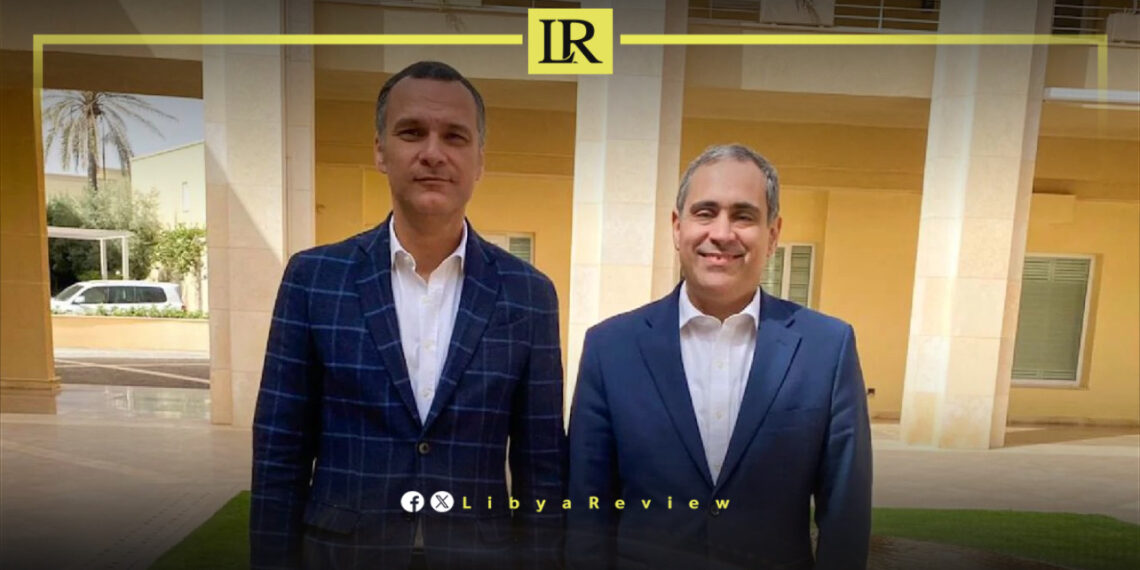On Thursday, the Acting Chargé d’Affaires at the US Embassy, Jeremy Berndt, met with his Egyptian counterpart Tamer Elhefny in Tripoli to discuss international support for achieving stability in Libya.
In a tweet from the US Embassy on X, Berndt emphasized the importance of unified international support to help stabilize Libya and advance the UN-facilitated political process. They also discussed creating a credible roadmap for successful national elections.
As part of his meetings with Libyan officials, the US diplomat met with the Chief of General Staff of the Government of National Unity (GNU), Lieutenant-General Mohamed al-Haddad. Berndt stated that their discussion focused on security issues, highlighting US support for Libyan efforts to protect the country’s sovereignty and secure its borders amidst regional stability challenges.
He reaffirmed the United States’ ongoing encouragement of efforts to unify and build the professional capacities of Libya’s security institutions.
Earlier this week, the US diplomat visited Benghazi, where he met with Major General Khaled Khalifa Haftar, Chief of Staff of the Security Units of the Armed Forces. They discussed regional stability challenges and the importance of protecting Libya’s sovereignty and securing its borders.
Following his meeting with General Haftar’s son, Berndt said in a post by the US Embassy on X that the US will work to engage military officials from across the country to unify military institutions. He confirmed that the United States will continue to support efforts to unify Libya’s security and military institutions to ensure lasting peace and stability.
Libya has been in a state of political and security turmoil since the fall of Muammar Gaddafi’s regime in 2011. The country has faced challenges with divided governance, militia violence, and regional power struggles. Efforts to stabilize Libya have involved various international stakeholders, including the United Nations, which has been facilitating political dialogue and peace processes.
Libya’s path to stability is fraught with challenges, including internal divisions, external influences, and the ongoing threat of militant groups. However, with continued international support and a focus on unifying the country’s institutions, there is hope for a more stable and secure future.


